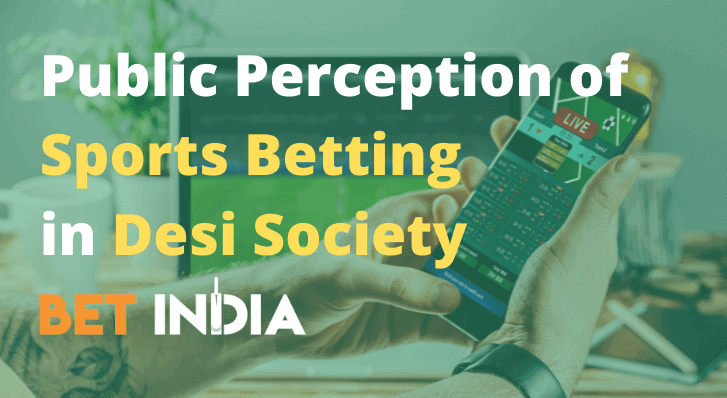Sports betting in India is without a doubt the largest real-money gaming market. Despite being illegal in many states and forms, it attracts millions of desi players on a daily basis. In-depth research reveals that every year sports betting moves upwards of $100 billion, making it the biggest entertainment segment in the Union.
Cricket is still the poster sport for the industry. Yet, big brand names and easy online access have made foreign leagues and global stars more popular than ever before. With fantasy and eSports as the new frontier of online betting, sports fans and casual punters show that a more immersive experience is in demand.
Why Is Betting Seen in a Good Light?
Mass media and authorities often tend to overlook the issue until black markets come into play. A phenomenon that brings so much passion to the common person cannot be ignored, however, and concrete steps towards regulation are often invoked by consumer protection groups.
Sports betting in India is popular for the same reasons as anywhere in the world – it combines the excitement of a favourite sports event with the realistic chance of earning some real money. For those playing with skill and knowledge, it only makes emotions stronger.
Horse Racing as a Positive Influence
Horse racing bets are a historical and legitimate tradition across the Union. Despite only a few big turf clubs being present, this game of skill did much for the social acceptance of sports bets.
Since its 18th-Century roots, horse racing events have been synonymous with “skill, speed, variety, glamour, gambling, thrills, scandals and big money”. High profile events have brought prestige and supported an entire industry.
Through highs and lows, this historical heritage has had a digital revival, with many turning to this niche sport in post-Covid times. The same way race tracks made their online transition, most sports betting platforms found their way into the palms of desi players.
Largely Favoured by Society
A positive attitude to betting is assumed in a similar manner to most developed markets, as sports betting has always been legal in English-speaking countries. The average desi person does not perceive occasional betting and real-money wagering as something to be pursued.
Media reports estimate that $200 million switch hands around every ODI match. Online betting has been proven more popular in states where local betting services are formally illegal (e.g. Telangana, Karnataka, Maharashtra) and where offshore sites get most of their players.
Given the market size and potential, rather than surrendering to hawala bookies, the Justice Lodha Committee had already proposed steps towards legalizing sports betting back in 2016.
Enticed by “Easy” Money
The lure of monetary gains is undeniable even for occasional punters. Those who know sports well view it as a quick and almost fail-safe way of proving their point and earning a legitimate addition to their income.
Then again, newcomers more than anyone tend to blame losses on misfortune. Most players try to find a solution and improve in the future, turning betting into a sort of stock market occupation. While making a big hit is always the dream, the general view is that wagering on sports is justified “if you know what you’re doing”.
Negative Perceptions Persist
Objections to sports betting are inevitably inspired by the risks tied to illegal bookmaking. Underground markets symbolize the social and financial evils that a moral society wishes to eliminate. Such concerns are often present in political speeches and media accounts.
Organized Crime and Black Markets Still Thriving
Historic references to back-alley betting make the rational connection to D-Company or other local organized syndicates. Many of those channel black market money to drugs and other criminal dealings.
Crime-related cash flows are hard to track and bring revenue losses to the government. More importantly, illegal betting offers no protection to players and no guarantees whatsoever. In the end, black markets also hurt social redistribution and much-needed welfare programs.
The Stigma of Problem Gambling
Problem gambling might become an issue even for those with no apparent lack of willpower. When they lose, some players suffer psychologically even more so than financially. This, on the other hand, brings back the issue of a well-regulated market.
Addictions and problem gaming are better addressed through spending limits, government monitoring and support programs rather than blanket bans. Education and awareness campaigns have the power to reach the public at large and protect it from illegal and unlicensed operators.
Is Match Fixing an Issue?
Considering the social value of sports, the desi public is quite alert to issues of sport integrity. The 2013 match-fixing scandal hurt the IPL image and raised the question of corruption in sports.
Bookies are seen as facilitators while there are more influential middlemen that people might suspect of unfair dealings. Raising industry standards, bottom-up, is certain to improve accountability and decrease bribes and regulatory neglect.
Putting the spotlight on rules and licenses has proven to decrease match-fixing concerns. By setting up a strict regulatory regime India can eliminate fake and unscrupulous operators in all sports-related sectors.
The Moral Dilemma of Legalization
As we’ve seen, regulating the sports betting market is justified by a number of economic and social benefits. Despite that, politicians remain noncommittal and many businesses that fuel the big machine of sports remain without government recognition.
The Law Commission stressed the importance of formal legalization in a 2018 report, while the nation’s industrial and commercial chambers (FCCI) pitched in favourably a year later. Across the Union, in cities big and small, unlicensed figures should be kept outside people’s sports and pockets if the government wants to protect a sizable and passionate portion of desi society.
One thing we cannot ignore is the rise of digital platforms, from fantasy sports leagues to mobile betting apps. They have become a convenient and natural way of following competitive sports from around the world and putting in your own two cents’ worth, whether in terms of knowledge, passion or real money.
Whenever authorities realize that most Indians would readily support the legalization of sports betting – under precise regulations – we might at last see a quick change in legislation and market practices, State by State.


